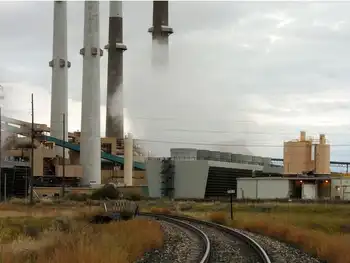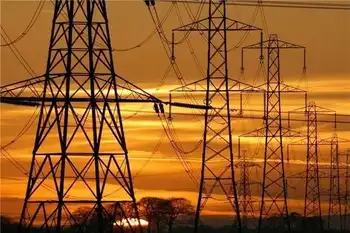North Carolina Panel Puts Electricity Reform on Hold
- Oct. 1--The record length of this year's legislative session has further short-circuited consideration of any proposals to reform the way electricity is sold in North Carolina.
Members of the Study Commission on the Future of Electric Service in North Carolina put their meetings on hold at the start of the year pending the conclusion of the 2001 legislative session. The main reason is 18 of the 30 commission members are legislators whose time is occupied during the General Assembly session on other matters.
When they last met in December, study commission members had expressed hope they would be able to resume meeting in the late summer or early fall. The group had been discussing the possibility of deregulating the state's electric industry and opening it up to fair market competition.
But because of the recently concluded, but lengthy, negotiations over the state budget, and the ongoing debate in the General Assembly over state legislative and congressional redistricting, it remains unclear when the study commission might resume deliberations.
The issue of electric industry reform was discussed in Guilford County Friday at the fall conference of the N.C. Economic Developers Association, a group made up of economic developers from across the state. The conference was held at the Grandover Resort & Conference Center.
Joseph Harwood, a vice president with Charlotte-based Duke Energy Corp., said the study commission probably will focus on wholesale electric power issues when it resumes meeting. The commission may not have much time to deal with the issue of retail competition before the 2002 legislative session begins in May, Harwood told the association members.
Two members of the commission interviewed by telephone Friday by the High Point Enterprise said Friday they don't expect significant progress.
"I haven't heard a word from anybody in the state House this year about the need to deregulate," said Rep. Mary Jarrell, D-Guilford, one of two representatives from the Triad on the study commission.
Sen. Kay Hagan, D-Guilford, said she doesn't expect the commission to meet until January at the earliest. "I can't see us doing anything, to tell you the truth," Hagan said. "There are so many people worried about everything that's happened in California." For the past year and a half, California officials have grappled with the fallout from their experiment with electric industry reform.
California's electric industry, one of the first in the country to deregulate, started to implode in the summer of last year. The resulting energy crisis has led to exorbitant increases in customer rates, insolvent utilities and periodic, rolling blackouts across parts of California.
Hagan and Jarrell said the study commission, which has been meeting for more than three years, doesn't want to act until it can ensure North Carolina will avoid the pitfalls that have caused the crisis in California.
High Point leaders have kept track of the electric industry reform debate in North Carolina because of another thorny issue  municipal power debt.
The study commission has declined to propose any solution to the $5.4 billion municipal power debt issue. The 51 towns and cities that run their own electric systems have incurred the debt because of construction costs for two nuclear power plants built in the 1970s.
The costs skyrocketed after the 1979 accident at the Three Mile Island nuclear plant led to stricter construction and operation standards for nuclear facilities. The 51 towns and cities had invested in the construction of the Harris and Catawba nuclear plants.
The thorny debt problem carries significance for High Point, since it has a debt load of approximately $419 million, the fourth-largest individual debt among the 51 municipal power agencies.
Related News

Trump declares end to 'war on coal,' but utilities aren't listening
WASHINGTON - When President Donald Trump signed an executive order last week to sweep away Obama-era climate change regulations, he said it would end America's "war on coal", usher in a new era of energy production and put miners back to work.
But the biggest consumers of U.S. coal - power generating companies - remain unconvinced.
Reuters surveyed 32 utilities with operations in the 26 states that sued former President Barack Obama's administration to block its Clean Power Plan, the main target of Trump's executive order. The bulk of them have no plans to alter their multi-billion dollar, years-long shift away from…




